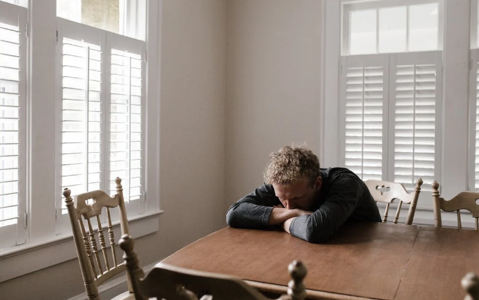Is there a relationship between OCD and misophonia? Do you get angry when someone chews food or makes loud sounds around you? Have you ever snapped when someone was breathing too loudly? Do you feel irritated when you hear someone sniff, sigh, or snore? If you experience these situations, then you might be suffering from misophonia. The literal meaning of misophonia is hatred of sounds, which is a Greek word. For normal people, misophonia feels like when someone scratches nails on a chalkboard.
This makes them squirm with displeasure and forces them to react and stop that annoying sound. But for a person suffering from misophonia, experiencing a similar situation is a routine. Every day, they hear different yet normal sounds and feel the same. Many people associate the condition with OCD, perhaps because both conditions psychologically occur in the same region of the brain. Let’s understand in detail what OCD is and if it relates to misophonia.

What is OCD?
OCD or obsessive-compulsive disorder is a psychological condition in which a person experiences obsessions and/or compulsions. The brain of a person suffering from OCD generates repeated unwanted sensations or thoughts. They also experience the urge to perform the same activity over and over again until they feel satisfied. Some people have both compulsions and obsessions. Many people confuse OCD with nail-biting habits and other negative thoughts. However, that isn’t true, as obsessive thoughts cause an unsettling feeling. An obsession can be about defining a color or number, good or bad. On the other hand, a compulsive habit is when you perform an activity repeatedly, such as washing your hands multiple times, especially after touching items that could or could not be dirty. Although you try not to do these activities, your brain tells you to, making your feel powerless. Everyone has different thoughts or actions that they repeat sometimes. But people suffering from OCD have actions or thoughts that:
- They cannot control
- Take hours to complete
- Interfere with work
- Aren’t enjoyable
- Make you feel like snapping on others
- Make your snap on someone with loud breathing
What is Misophonia?
Misophonia is a behavioral and neurophysiological condition in which a person flips out when they hear certain noises or triggers. The triggering sound can be low or higher in volume, or perhaps others may not even notice. But, it can easily trigger a person with misophonia. Many people confuse misophonia with OCD. Let’s understand how these conditions relate to each other:
Relationship between OCD and Misophonia
Misophonia and OCD are different conditions that came into the spotlight recently. Experts need to learn a lot about misophonia because there is limited information about how this condition reacts. Recently, researchers found some new information about these conditions. This includes the link between both conditions.
1. Similar Coping Strategies
People with misophonia exhibit the same coping mechanisms as people with OCD. The only difference between their coping mechanisms is how they apply them. Since misophonia relates to unpleasant sounds and is a more isolated condition, dealing with this condition requires a pair of noise-canceling headphones. That way, misophonia patients can create a trigger-free environment around them.

2. The Shared Trigger-Response Mechanism
In both misophonia and OCD, the body responds in the same manner. When a person is in contact with a triggering sound, or they notice any activity that doesn’t seem right, they will feel discomfort. The certain irritant in both conditions leads to the involuntary response by their body. In both conditions, a person can get violent and feel physical sensations as a result of a trigger. The symptoms for both mental disorders are the same, such as an increased heart rate. However, the exact mechanism is still unknown, so it is hard to draw a clear conclusion.
3. Differences in Diagnosis
Regardless of so many similarities, there are some inherent differences that you need to consider before attempting to diagnose yourself. For starters, the diagnosis process for both these conditions is different. Also, you should visit different specialists for the treatment. If you notice that you are suffering from misophonia, you need to consult an audiologist with extensive experience in the field. Finding a misophonia specialist can be difficult, as the condition is relatively unpopular. But, if you live in NYC, there is good news for you. You can visit the Misophonia Cognitive Center and consult with top sound disorder specialist Stephen Geller Katz.
OCD and Misophonia: Conclusion
When you visit our clinic for misophonia treatment, our specialists will diagnose your condition and identify your triggers. Every misophonia patient has different triggers. After identification, they will try different methods to mask and reduce the effects of certain sounds. If you want to learn more about your condition and treatment options, give Stephen Katz LCSW a call and schedule a free consultation online or by phone today.
MISOPHONIA COGNITIVE CENTER™
19 West 34th Street
Penthouse Floor
New York, NY 10001
646-585-2251
